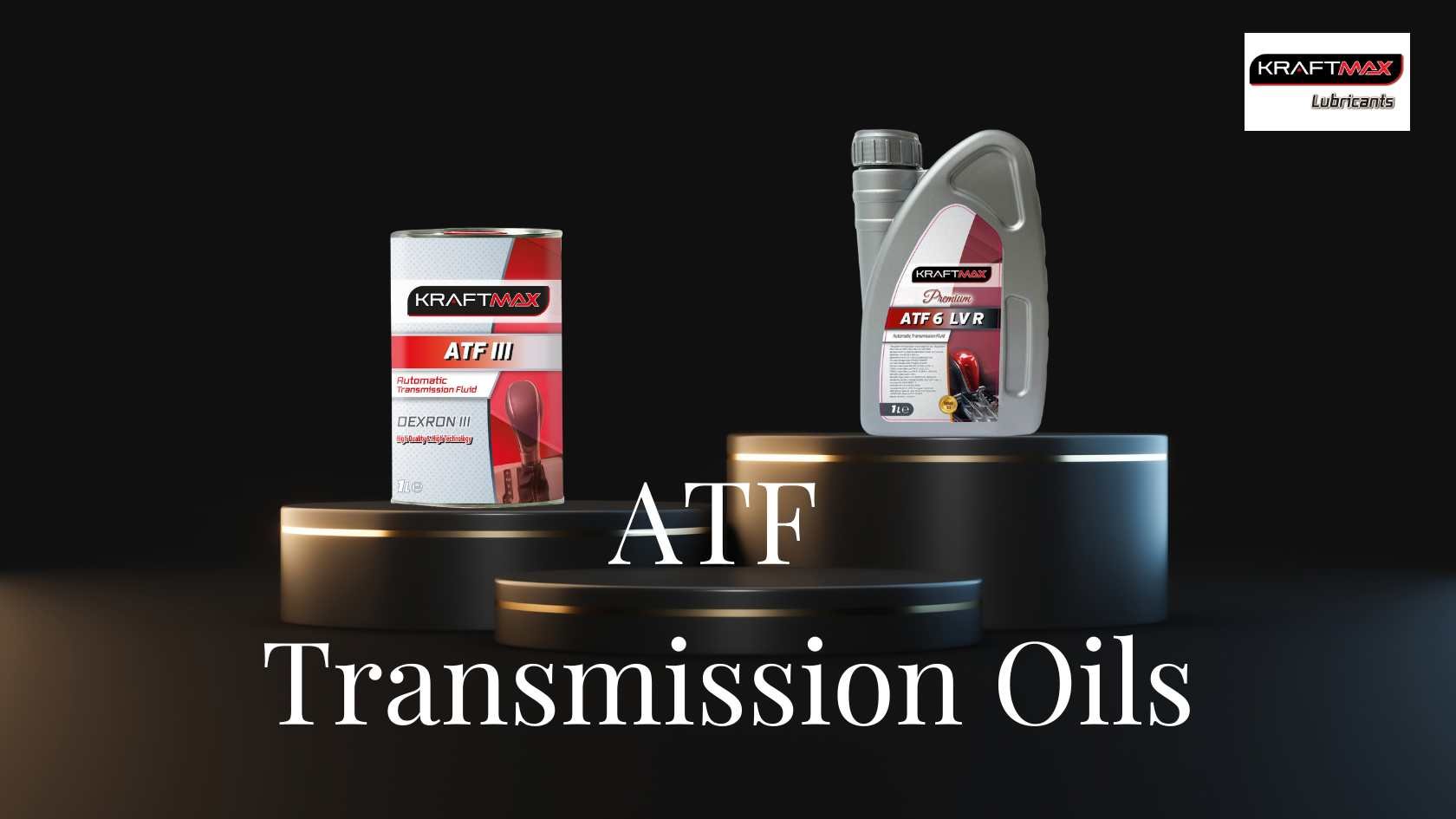Automatic Transmission Fluid (ATF) plays a crucial role in ensuring smooth gear shifts and maintaining the overall efficiency of a vehicle’s transmission system. Unlike motor oil or engine oil, ATF is specifically designed to lubricate, cool, and clean automatic transmission components.
With the increasing demand for high-quality automotive spare parts, Turkey have become key suppliers of ATF motor oils. Choosing the correct ATF is essential to prevent transmission damage and maximize the lifespan of your vehicle.
What Is ATF (Automatic Transmission Fluid)?
ATF is a specialized fluid formulated to meet the unique demands of automatic transmissions. It performs several critical functions, including:
- Lubrication: ATF reduces friction and wear between moving components within the transmission system, such as gears, clutches, and bearings. This takes place as it forms a protective film layer over metal surfaces, preventing direct metal-to-metal contact, which helps extend the lifespan of transmission parts.
- Heat Dissipation: ATF absorbs and transfers excess heat generated by friction and hydraulic pressure inside the transmission. High-quality ATFs of KRAFTMAX Oil contain oxidation inhibitors that prevent fluid degradation under extreme temperatures, ensuring stable performance.
- Cleaning: ATF contains detergents and dispersants that help prevent the accumulation of sludge, varnish, and carbon deposits inside the transmission. These additives keep the fluid clean and ensure that valves, solenoids, and hydraulic passages remain free of blockages, allowing for smooth operation. It is notable that regular ATF changes are very helpful and necessary.
- Hydraulic Function: ATF acts as a hydraulic fluid, transmitting force and pressure within the transmission system to engage and disengage gears smoothly. By this function, it ensures precise operation of components like torque converters, clutch packs, and valve bodies, enabling seamless gear shifts.
Why Choosing the Right ATF Is Crucial?
Using the wrong ATF can lead to transmission failure, expensive repairs, and decreased fuel efficiency. Manufacturers specify different ATF formulations depending on the design of their transmission systems, and that is when KRAFTMAX Oil’s tailored high quality ATFs come to your help for the right ATF selection.
Wrong ATF selection can have consequences such as erratic gear shifts and poor performance, increased wear and tear on internal transmission components, damage to transmission seals and gaskets, overheating, leading to potential transmission failure. While purchasing ATF, always check your owner's manual for compatibility.
Major Types of ATF Motor Oils
Conventional ATF
Conventional ATF is made from refined crude oil and contains additives to enhance performance. It is primarily used in older vehicle models with traditional automatic transmissions.
Key Features:
- Cost-effective and widely available.
- Requires frequent changes due to faster degradation.
- Best suited for older vehicles with non-synthetic transmission systems.
Synthetic ATF
Synthetic ATF is engineered for better thermal stability and longevity compared to conventional ATF. It is commonly used in modern automatic transmissions.
Benefits of Synthetic ATF:
- Resists oxidation and sludge formation.
- Performs well in extreme temperatures.
- Extends ATF change intervals, reducing maintenance costs.
Semi-Synthetic ATF
A blend of conventional and synthetic ATF, semi-synthetic transmission fluid offers a balance between performance and affordability.
Ideal for:
- Vehicles that require moderate performance improvements.
- Drivers looking for a budget-friendly alternative to full synthetic ATF.
Different ATF Specifications and Standards
Dexron Series (GM)
The Dexron series, developed by General Motors (GM), includes multiple generations:
- Dexron II: Basic formulation used in older GM vehicles.
- Dexron III: Improved oxidation resistance and durability.
- Dexron VI: Advanced formula with improved fuel efficiency and longevity.
ATF+ Series (Chrysler, Jeep, Dodge, RAM)
- ATF+3: Used in older Chrysler vehicles.
- ATF+4: Fully synthetic and backward compatible with ATF+3.
CVT Fluid (Continuously Variable Transmission Fluid)
CVT transmissions require specialized ATF to maintain proper friction levels. Unlike traditional ATF, CVT fluid is formulated to work with belt-driven transmissions.
DCT Fluid (Dual-Clutch Transmission Fluid)
Dual-Clutch Transmission (DCT) systems require a unique type of ATF to support their high-performance shifting mechanism. Using standard ATF in a DCT system can cause transmission failure.
What Do Different ATF Colors Mean?
ATF color can indicate the condition of the fluid and whether it needs to be changed:
- Bright Red: Healthy ATF, no contamination.
- Dark Brown: Aging ATF, should be replaced soon.
- Black: Overdue for replacement, potential transmission damage.
How to Check and Change ATF Properly
Signs Your ATF Needs Changing:
- Slipping gears.
- Delayed or rough shifting.
- Burnt smell or dark fluid color.
- Unusual transmission noises.
Steps to Check and Replace ATF:
- Park on a level surface and engage the parking brake.
- Locate the ATF dipstick and pull it out.
- Check the fluid level and color.
- If needed, drain the old ATF and refill with manufacturer-approved fluid.
- Test drive to ensure smooth operation.
Choose the Best ATF
Choosing the correct ATF motor oil is essential for keeping your vehicle's transmission in top condition. Do not forget to always follow manufacturer recommendations to avoid costly repairs. KRAFTMAX Oil, is the best choice for high quality ATF. By exporting to many countries, we have prooven ourselves and we have been honored to be positiones as the best in this regard. Our experts help you understand different ATF types and their benefits, to ensure optimal performance and extend the life of vehicle’s transmission and your customer happiness.


